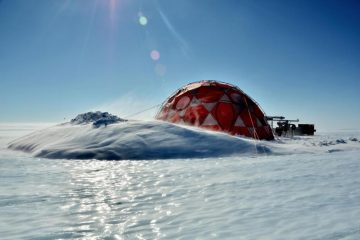Earth Sciences (also referred to as Geosciences), which deals with basic issues surrounding our planet, plays a vital role in the area of energy and raw materials supply.
Earth Sciences comprises subjects such as geology, geography, geological informatics, paleontology, mineralogy, petrography, crystallography, geophysics, geodesy, glaciology, cartography, photogrammetry, meteorology and seismology, early-warning systems, earthquake research and polar research.

University of South Florida geoscientists have successfully developed and tested a new high-tech shallow water buoy that can detect the small movements and…

In the first NASA study to calculate the value of using satellite data in disaster scenarios, researchers at NASA's Goddard Space Flight Center in Greenbelt,…

Gas bubbles trapped in the cores — which are the oldest yet recovered — contain pristine samples of carbon dioxide, methane and other gases that serve as…

The new findings show that important steps in the Earth's sulfur cycle have not yet been properly understood, as they call into question the previously assumed…

Manganese nodules, which are about the size of potatoes, are found on large parts of the ocean floor at a depth of several kilometers. Huge fields of these…